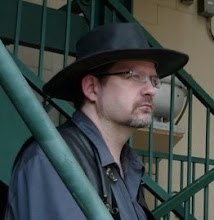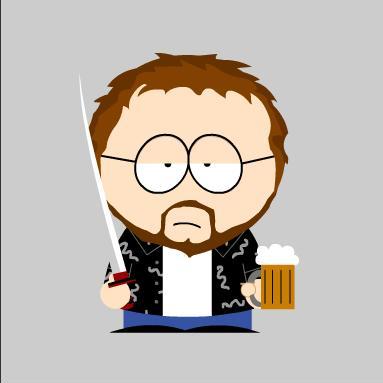D&D - History and Growth
Here's an interesting article looking at the volume of material produced for D&D over the years, from edition to edition.
(edit: the following rant is not directly related to the linked article, I was just inspired to rant).)
The question has been bandied about as to whether or not Hasborg is ripping off gamers by cranking out more and more books for D&D in an ongoing succession of editions. To play devil's advocate, I'll say why not.
Gamers have always beencheap frugal, most lacking a great deal of disposable income. In the old days, we derided TSR as T$R while still purchasing the books. We hated to spend money, but hated even more not having the new rules options other gamers purchased.
But if all of these new books were merely to gouge gamers, would a customer base of arguably higher than average intelligence continue to mindlessly buy whatever came off the presses? When Hasbro acquired WotC, 3e was only a few months away, which means Hasbro wasn't the impetus behind the new edition.
What about 3.5? Well we could certainly be cynical regarding this "patch", but how many people stuck to 3 over 3.5? There were valid fixes and improvements made to the game, and 3.5 flourished well enough that WotC cranked out over 8,000 pages of material for it, but also really drove the d20 industry that started in 3e.
Is that to say that all of those 8,000 pages were "quality"? No, some material rang of "this is a neat idea, let's use it to fill pages in this book." But catering to this customer base is difficult especially when you consider the varied tastes of gamers. But regardless, it would be counter-productive of WotC/Hasbro to publish material merely to milk some cash from gamers. I think that any product they put out they hope will attract enough of a following to garner future purchases, because cranking out thousands of pages does no good if a spurned gaming community leaves them gathering dust on shelves.
While I don't agree with all of the design philosophies in 4e and I do think it was business motivated, I don't think it was part of an evil conspiracy to screw us over. Not only was 3.5 bloated from raw material put out, it had suffered a power bloat as classes and options in each successive book were cool enough to warrant purchasing the book. It was also counter-productive to bringing in new players. Buying a Player's Handbook didn't seem that much, but if everyone else at the table was using the full array of Complete X books suddenly it became much more daunting to be competitive.
Hasbro is a business, and in the case of Wizards it stays in business by selling product. Does that obligate us to buy every book that comes out just to support them and the game? No. In fact, the best way to make our collective voice heard is to only buy the material we consider to be of quality and use. I'm sure Hasbro is quite aware that not only do we have plenty of avenues to obtain what we need for our hobby, we are quite capable as a community of creating our own content. But I think we should knock off the "hating" until we see how they continue to support the game and at what level of quality.
(edit: the following rant is not directly related to the linked article, I was just inspired to rant).)
The question has been bandied about as to whether or not Hasborg is ripping off gamers by cranking out more and more books for D&D in an ongoing succession of editions. To play devil's advocate, I'll say why not.
Gamers have always been
But if all of these new books were merely to gouge gamers, would a customer base of arguably higher than average intelligence continue to mindlessly buy whatever came off the presses? When Hasbro acquired WotC, 3e was only a few months away, which means Hasbro wasn't the impetus behind the new edition.
What about 3.5? Well we could certainly be cynical regarding this "patch", but how many people stuck to 3 over 3.5? There were valid fixes and improvements made to the game, and 3.5 flourished well enough that WotC cranked out over 8,000 pages of material for it, but also really drove the d20 industry that started in 3e.
Is that to say that all of those 8,000 pages were "quality"? No, some material rang of "this is a neat idea, let's use it to fill pages in this book." But catering to this customer base is difficult especially when you consider the varied tastes of gamers. But regardless, it would be counter-productive of WotC/Hasbro to publish material merely to milk some cash from gamers. I think that any product they put out they hope will attract enough of a following to garner future purchases, because cranking out thousands of pages does no good if a spurned gaming community leaves them gathering dust on shelves.
While I don't agree with all of the design philosophies in 4e and I do think it was business motivated, I don't think it was part of an evil conspiracy to screw us over. Not only was 3.5 bloated from raw material put out, it had suffered a power bloat as classes and options in each successive book were cool enough to warrant purchasing the book. It was also counter-productive to bringing in new players. Buying a Player's Handbook didn't seem that much, but if everyone else at the table was using the full array of Complete X books suddenly it became much more daunting to be competitive.
Hasbro is a business, and in the case of Wizards it stays in business by selling product. Does that obligate us to buy every book that comes out just to support them and the game? No. In fact, the best way to make our collective voice heard is to only buy the material we consider to be of quality and use. I'm sure Hasbro is quite aware that not only do we have plenty of avenues to obtain what we need for our hobby, we are quite capable as a community of creating our own content. But I think we should knock off the "hating" until we see how they continue to support the game and at what level of quality.




1 Comments:
Thanks for the link.
Your take on the quality of the material and how to make our views felt to WotC are in line with my own. However it can be very difficult to assess the quality of the books before purchasing. Sometimes it can take several hours of play to prove a set of rules are badly thought out.
One of the reasons (I believe anyway) that original D&D and 1st Ed. flourished is because it was a cheap game.
A PHB, DMG and MM, plus some dice, paper and pencils were all you needed to entertain yourself and a group of friends for, quite literally, years.
This made it a cost effective and desirable entertainment for school kids, students and military personnel; the three groups who drove the original rise of RPGs.
My other gripe about the amount of rule books is that there seems to have been a corresponding drop in the number of adventures produced. Certainly in the 70's and early 80's TSRs focus was on adventures and campaigns but they then made a deliberate shift to rule books.
Post a Comment
<< Home